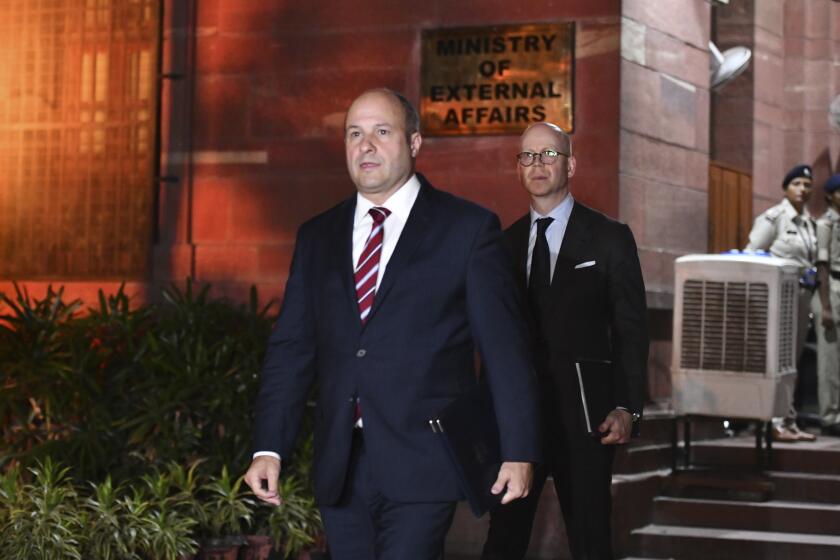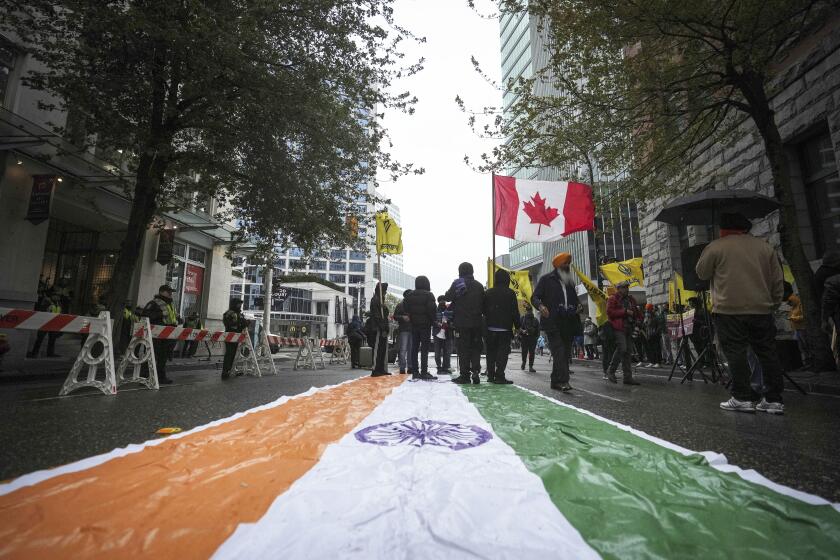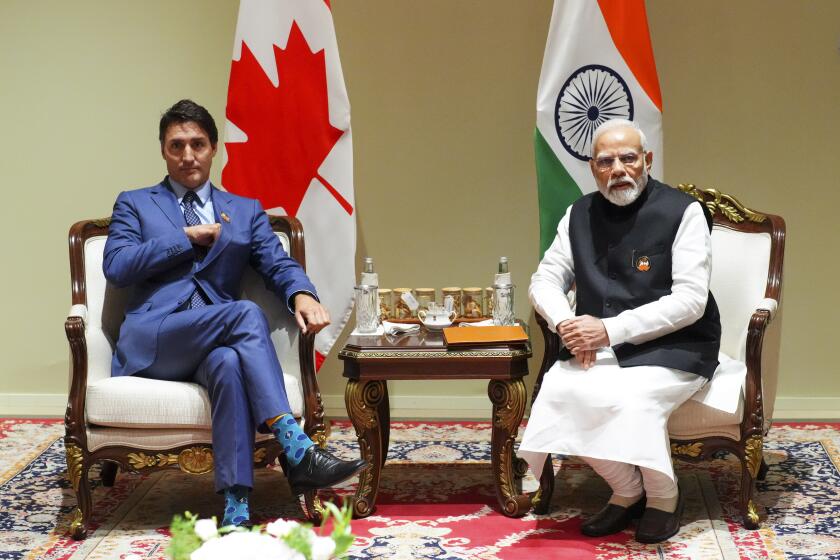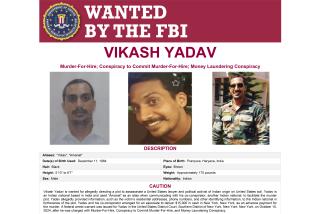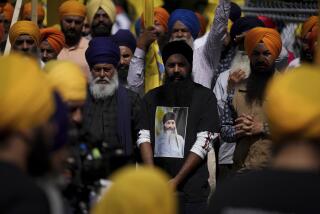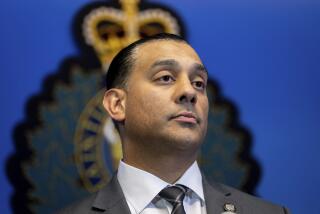India denies Canadian allegation that it uses mobsters to target Sikh separatists in Canada

- Share via
NEW DELHI — India’s government on Thursday denied it was working with mobsters to target Sikh separatists in Canada as alleged publicly this week by Canadian officials in an escalating diplomatic dispute.
India’s External Affairs Ministry spokesman Randhir Jaiswal denied that India was in cahoots with India-based mobsters in Canada and even suggested that Canadian authorities had been resisting India’s attempts to extradite those people to India.
“It is strange that people who we asked to be deported” are being blamed by the Canadians for “committing crimes in Canada,” Jaiswal said.
Canadian Prime Minister Justin Trudeau and police officials went public this week with allegations that Indian diplomats were targeting Sikh separatists in Canada by sharing information about them with their government back home. They said top Indian officials were then passing that information along to Indian organized crime groups who were targeting the activists, who are Canadian citizens, with drive-by shootings, extortions and even murder.
Canada and India each expelled six diplomats Monday in tit-for-tat moves as part of an escalating dispute over the June 2023 assassination of a Sikh activist in Canada.
The two sides ordered the expulsion of top diplomats this week in the deepening crisis over the accusations, including Canada’s allegation that the diplomats were linked to the June 2023 killing of Sikh activist Hardeep Singh Nijjar.
Canada is not the only country that has accused Indian officials of plotting an assassination on foreign soil. Last year, U.S. prosecutors said an Indian government official directed a failed plot to assassinate another Sikh separatist leader in New York.
The official was neither charged nor identified by name, but was described as a “senior field officer” with responsibilities in security management and intelligence.
The Nijjar killing has soured India-Canada ties for more than a year, and despite Canada’s assertion that it has forwarded evidence of its allegations to Indian authorities, the Indian government continues to deny it has seen any.
Jaiswal said again on Thursday that Canada has provided no evidence of its allegations surrounding attacks on Sikh activists, contradicting Trudeau’s statements this week that his country’s investigators have privately shared information with Indian counterparts and found them to be uncooperative.
India has ordered Canada to slash its diplomatic presence in the country by two-thirds, escalating a confrontation over the death of a Sikh activist.
At the same time, Jaiswal accused Canada of failing to take action against Sikhs living in Canada who face terrorism charges in India and who are accused of being part of a Sikh secessionist campaign in India’s northern Punjab state.
Jaiswal said India’s 26 extradition requests have been pending in Canada for a decade or more. He also said that several criminals had provisional arrest requests pending with Canadian authorities.
“Some of them are charged with terror and terror-related crimes [in India]. So far, no action has been taken by the Canadian side on our requests. This is very serious,” Jaiswal said.
India has repeatedly criticized the Canadian government for being soft on supporters of what is known as the Khalistan movement, which is banned in India but has support among the Sikh diaspora, particularly in Canada.
The Royal Canadian Police said Monday it had identified India’s top diplomat in the country and five other diplomats as persons of interest in the Nijjar killing. The RCMP also said they uncovered evidence of an intensifying campaign against Canadians by agents of the Indian government.
After its explosive allegation of possible Indian involvement in the killing of one of its citizens, Canada receives only muted support from allies.
Nijjar, 45, was fatally shot last year in his pickup truck after he left the Sikh temple he led in Surrey, British Columbia. An Indian-born citizen of Canada, he owned a plumbing business and was a leader in what remains of a once-strong movement to create an independent Sikh homeland.
Four Indian nationals living in Canada were charged with Nijjar’s murder and are awaiting trial.
Meanwhile, two members of an Indian inquiry committee to investigate the plot unveiled in the United States traveled this week to Washington where they were briefed on the investigation, U.S. State Department spokesman Matthew Miller said Wednesday.
“They did inform us that the individual who was named in the Justice Department indictment is no longer an employee of the Indian government,” Miller said. “We are satisfied with cooperation. It continues to be an ongoing process,” he said.
Sharma writes for the Associated Press. AP reporter Matthew Lee in Washington contributed to this report.
More to Read
Sign up for Essential California
The most important California stories and recommendations in your inbox every morning.
You may occasionally receive promotional content from the Los Angeles Times.
